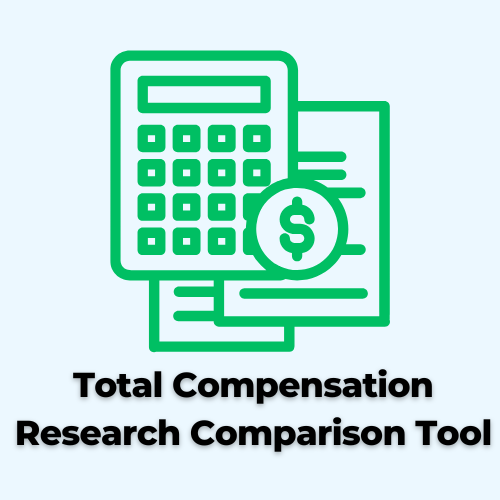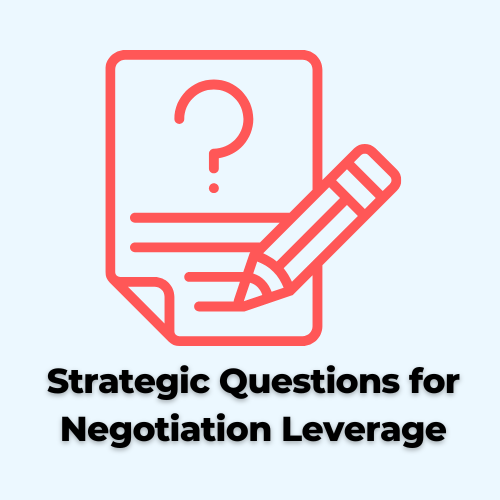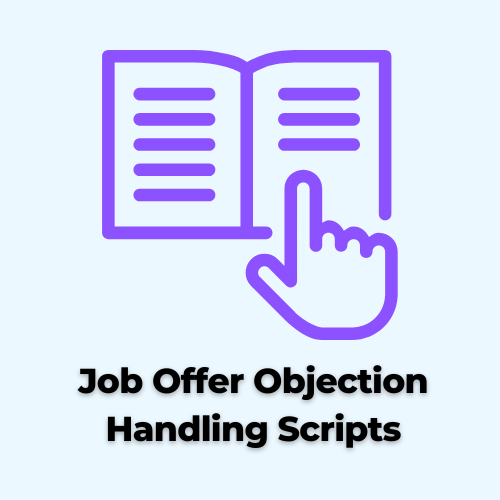Google Salary Negotiation - How To Negotiate a Google Job Offer
Google is known as one of the best companies in the world to land a job at—if not the best. Their compensation and employee benefits are unrivaled, and it’s difficult for any company to compete with the perks they provide. That’s part of why landing a job offer at Google is such an enormous accomplishment.
If you're currently interviewing with Google or you’ve received a job offer from them, congratulations! Whether you’re a software engineer, data scientist, solution architect, or working as a product manager or in a business-based role at Google, it’s still important to negotiate your Google job offer so you don’t leave anything on the table. Despite the amazing compensation they’re known for, it’s always possible to negotiate higher—even though it may seem intimidating.
In fact, just like with many other tech companies, we’ve had great success helping our clients navigate the process and negotiate a better Google job offer.
For those who prefer learning by video, we've also created a Google salary negotiation video guide. Otherwise, this article provides the same Google salary negotiation tips and strategies as the video.
This article outlines how to negotiate your Google job offer using The Salary Negotiator’s proven salary negotiation strategy.
Want to Negotiate Your Google Offer? Get offer-specific guidance from a Google Salary Negotiation Coach. We help career professionals negotiate competitive job offers.
Or leverage our Salary Negotiation Courses and Salary Negotiation Templates.
 Job Offer Negotiation Course
Job Offer Negotiation Course
- Get our job offer negotiation strategies, templates, scripts, and guidance.
- Access our step-by-step lessons, compensation research guides, and tools.
- Access Now
 Raise Negotiation Course
Raise Negotiation Course
- Get our raise negotiation strategies, templates, scripts, and guidance.
- Access our step-by-step lessons, compensation research guides, and tools.
- Access Now
Understanding the Compensation Components of a Google Job Offer
Understanding all of the components that factor into your total yearly compensation at Google before you start negotiating your offer is key. It’s one of the most important steps in the process, and it’s the same step we’d suggest if you plan to negotiate a Meta job offer or negotiate an Amazon job offer.
By knowing the ins and outs of every component, you’ll be more equipped to advocate for increases that will improve your overall compensation package—not just one part.
If this is your first role with a tech company, then your base salary will be the component you are most familiar with. The fun part is that this is only one aspect of your overall compensation at Google. Google not only offers a strong base salary, but they also offer a yearly performance bonus, an initial equity grant, a sign-on bonus (if you negotiate your job offer), and other benefits like health insurance, retirement perks, and even free food. These additional components reflect Google’s mission to compensate and treat its employees well.
For example, here’s an example of what the total compensation of a Google Software Engineer salary (L5) may look like in their initial offer:
Google Software Engineer salary
Google Base Salary
Google offers a generous base salary that is the foundation of your compensation. Your Google base salary is the fixed guaranteed pay you receive in exchange for the work you do, and it’s where you’ll see annual increases after your performance evaluations. Your annual performance bonus at Google will be a percentage of your base salary, so it’s a key item to focus on increasing during your Google salary negotiation.
This core component will have a set pay range for each role type and level with a set minimum and maximum base salary. For example, a Google Senior Software Engineer salary will have separate base pay ranges compared to a Google Staff Engineer salary, Google Senior Data Scientist salary, Google Hardware Engineer salary, or Google Senior Product Manager salary. These ranges not only allow for growth in compensation while at that level, but they also provide flexibility to negotiate your Google base salary before accepting.
Google Yearly Performance Bonus
Google provides an annual target bonus, which is a percentage of your base salary and is based on both personal and company performance. Luckily, Google has historically performed well as a company, so the company performance portion has delivered a consistent payout over the years.
The target percentage will range widely depending on your role type and level, but it’s important to clarify with the recruiter what the expected percentage is for your role level. That way you can assume the average payout when calculating the total compensation.
While this component is not directly negotiable, it is tied to your base salary, so if you successfully negotiate your Google base salary higher, your Google performance bonus will also increase by proxy.
Google Initial Equity Package
Google Stock Units (GSUs) will be included in your Google job offer. These GSUs represent shares of Alphabet stock that will be transferred to you when the equity vest. GSUs have a staggered four-year Google RSU vesting schedule with 38% vesting after your first year, another 32% in your second year, 20% in your third, and the final 10% in year four. Note that Google vesting schedules are front loaded with larger vest taking place earlier and differ from the evenly distributed vesting schedules you’d see at Apple, Microsoft, or some other companies.
Google Vesting Schedule
| Company | Vesting Period | Year 1 | Year 2 | Year 3 | Year 4 |
|---|---|---|---|---|---|
| 4 years (staggered) | 38% | 32% | 20% | 10% |
The size of the Google equity grant will vary because it is determined by the role type and level (i.e., is this for a Google product manager salary, Google director salary, or Google VP salary), but this equity component is fully negotiable. Having Alphabet stock is a valuable form of compensation, but it will fluctuate based on the market value of the company. If the value of your shares goes up, you share in that appreciation, but if it goes down, you share in that loss. Google has adopted a preferential vesting schedule that weighs the main portion of the equity in years one and two, but a large consequence is that you will forgo the equity if you leave Google before it vests per the Google RSU vesting schedule.
Many individuals focus on only negotiating the equity portion of their Google offer letter, but our clients have been successful in negotiating all compensation components (except for the yearly bonus). This has helped our clients reach the top end of Google’s total compensation pay band.
Google Sign-On Bonus
Almost everyone should be able to secure a sign-on bonus in their Google offer package.
Google sign-on bonuses are a one-time bonus that new employees receive as an incentive to join the company or to cover any lost bonuses or unvested equity that they may give up at their current company. In our experience, we’ve found that Google may not initially provide a signing bonus in some offer packages. If that’s the case, it is key to negotiate for a Google signing bonus.
This can be tricky if you don’t have a competing offer or you’re not walking away from money at your current company, but we’ve still seen great success negotiating for a Google sign-on bonus for our clients. Google will pay out the sign-on bonus when you first begin but there will be payback conditions tied to it—meaning you’ll need to pay back the bonus if you depart Google within the first year. This is a very common practice for most sign-on bonuses.
Google Equity Refresher
Google does offer an equity refresher (more GSUs) to most employees, but it’s difficult to know how much you’ll receive until your reach your first equity refresher. This is because most recruiters will not willingly share the expected yearly amount for a stock refresher at Google. This is important to ask the recruiter about but we don’t include this component in our total compensation calculation because the unknowns on the Google equity refresher makes it hard to compare across offers.
Benefits And Perks At Google
It’s a good time to appreciate the benefits and perks you’ll receive when you get a job at Google. Whether it’s the generous health and financial benefits, Google’s 401k match program, the onsite meals, snacks, and fitness centers, or the ability to earn massage credits, Google treats its employees very well. Given their incredible benefits and perks, it’s unlikely that Google will negotiate any of these for one employee.
Five Key Steps to Negotiate a Google Job Offer
Before you negotiate a Google job offer, it's important to understand how to tactfully navigate the process, so you can increase your chances of success without jeopardizing your relationship with the recruiter or hiring team.
It’s best to avoid starting the Google salary negotiation until you have an offer in hand. This may take some time with Google’s lengthy recruiting and team matching process, but you’ll have more leverage to negotiate once the hiring team has selected you and given you an offer.
Based on our experience helping hundreds of clients successfully negotiate their job offers, we’ve identified five essential steps for negotiating your Google job offer. While these are the key steps to a Google salary negotiation, we strongly recommend you work with a Google Salary Negotiation Coach to ensure success in your Google offer negotiation by getting all of our strategies.
1) Understand The Components Of Your Google Job Offer
The first step is easy since we’ve already laid out the components of your Google job offer: base salary, performance bonus, initial equity grant, sign-on bonus, and any benefits and perks. This is why it’s important to understand your total compensation before you attempt to negotiate your Google job offer.

- Understand Total Compensation – Use our tool to break down and calculate the compensation in your job offer.
- Research & Compare Offers – Organize your compensation research and determine the right counter amount.
- Get Here
2) Complete Due Diligence On Your Google Job Offer By Asking The Right Questions
Every recruiter takes note when a candidate asks good questions. Why? It shows you’re interested in the role and the company and that you care enough to dig deeper. Beyond that, asking good questions helps you develop an effective and successful Google counteroffer by getting clarification on items that the recruiter may have been vague about (i.e., What is the expected annual equity refresher at Google for this level?).
Don’t forgo this step. Even if you think you already understand all aspects of the package, asking for clarification or more information will strengthen your Google counteroffer and your reasoning for why the Google team should provide a better offer package. You can use our list of Strategic Questions to Build Negotiation Leverage if you need help finding the right questions to ask about your Google offer letter.

- Build Negotiation Leverage – Ask the right questions to strengthen your negotiation before sending a counter.
- Email & Phone Scripts – Get our list of questions to ask and what to say if the recruiter wants to chat through them.
- Get Here
Every data point counts—make sure you start this phase of the negotiation right after you receive the initial offer from Google.
3) Research The Compensation Ranges To Identify What Your Compensation At Google Should Look Like
Google provides different offer packages to employees, and while the structure is the same, the compensation amount varies. That’s why it’s important to conduct compensation research to understand where your compensation falls in the role’s pay range, the strength of the offer, and how much you should push for in your Google counteroffer. This includes focusing your research on the specific role and where it’s located (i.e., a Google director salary or Google hardware engineer salary in San Francisco), whether that be in-person, hybrid, or remote.
We use a few private tools to research compensation for our clients, but if you’re researching on your own, there are many public resources you can use, such as Payscale, Glassdoor, or Comparably. Be sure to check multiple sources instead of relying on one as the authoritative resource for what the role should pay. Also note that these resources provide publicly reported data from current/past employees so it is possible that the pay may differ from what they may offer new employees (i.e., a current employee might have a higher total compensation at Google due to equity appreciation and equity refreshers), and numbers may vary if the user didn’t upload their Google compensation components correctly. You can download our Total Compensation Research Comparison Tool to help you with your Google compensation research.

- Understand Total Compensation – Use our tool to break down and calculate the compensation in your job offer.
- Research & Compare Offers – Organize your compensation research and determine the right counter amount.
- Get Here
We always recommend pushing for the mid-to-top-end of the base salary and total compensation range when negotiating a Google job offer. We believe that you should be paid the same as anyone else in the same role regardless of your experience or background.
4) Send A Google Counteroffer To The Recruiter
Once you’ve completed preparing for the negotiation (the first three steps), you’re ready to send a Google counteroffer. This is where the salary negotiation with Google officially kicks off!
In this step, you’ll present your ask to the Google recruiter by referencing your research on the pay range and how the Google benefits differ from other companies and/or your current role. This can be done over the phone, but we strongly recommend negotiating your Google salary via email. That way you can draft exactly what you want to say in a professional and friendly tone, and you don’t risk going off-topic if the recruiter throws you a curve ball. It also ensures you have everything in writing. Lastly, it provides the recruiter with something that they can use to support why you deserve a higher offer.
Check out our Counteroffer Drafts for examples if you need help formulating a strong Google counteroffer. Just remember that you should always approach this step as amicably as possible. We recommend treating the recruiter like a friend who is doing their best to help you transition to Google.

- Proven Counteroffer Templates – Built from hundreds of successful job offer negotiations.
- Negotiate with Confidence – Remove the guesswork with our professionally crafted counteroffers.
- Get Here
5) Handle Any Objections From The Recruiter And Accept The Role Knowing You Achieved The Best Google Job Offer
Sometimes it only takes one Google counteroffer and the recruiter will respond with an updated offer package. Usually though, you’ll receive reasons from the recruiter for why they can’t make any increases on the Google job offer.
To handle an objection from a recruiter, respond calmly by stating you understand their constraints, but you would appreciate it if they can take your thoughts back to their team for one last look at the Google job offer (even if they insist their team will just say no). Use this approach regardless of the recruiter’s reasoning and follow all of our recruiter objection scripts if needed.

- Overcome Recruiter Pushback – Proven scripts to handle pushback and keep your salary negotiation on track.
- Communicate Effectively – Use expert responses to get recruiters to advocate for you with the compensation team.
- Get Here
You may have to handle a few objections, but once they agree to take it back to their team, they should come back with an improved offer. Continue to remain persistent yet respectful as you navigate any obstacles.
Once you receive a negotiated job offer that fits your personal needs and matches the pay bands you researched, you should be ready to send an acceptance email to the recruiter and start planning the transition to Google. Congratulations on your successful salary negotiation with Google!

- Accept or Decline – Expert crafted job offer acceptance email and rejection email templates to share your decision.
- Professional & Genuine Tone – These help you communicate in a professional manner regardless of what you decide.
- Get Here
Negotiation Mistakes to Avoid During your Google Salary Negotiation
Google has a huge compensation and recruiting team, and the team you work with is trained to get you to accept a job offer at Google without negotiating. Recruiters are prepared for these conversations because they have them every day and they have strategies for avoiding a Google salary negotiation. Remember that they work for Google, not you. Below, we list several mistakes you should avoid so you can increase your chances of a successful Google job offer negotiation.
Avoid Sharing Salary Expectations Before You Get A Job Offer At Google
Google will, more than once, ask for your expected compensation during the lengthy recruiting process. But remember: if you share your salary expectations before you have an offer it can work against you in receiving better compensation so use our salary expectations scripts.

- Salary Expectation Responses – Scripts to overcome recruiter salary expectation discussions and pre offer calls.
- Avoid Lowballing Yourself – These call scripts and email templates will help you get a competitive offer.
- Get Here
For example, if you share a lower compensation than what Google can offer, they are more likely to offer you that low compensation. If you throw out a number higher than what Google can offer, there’s a chance they could decide to go with a different candidate. Furthermore, it doesn’t make sense to discuss compensation before you learn more about the specific role, Google’s benefits and compensation, and whether those aspects feel like a good fit for you. After all, you’re also interviewing Google!
Don't Be Afraid To Negotiate A Google Job Offer
Landing a job offer with Google is a huge accomplishment. This may make you afraid to negotiate your Google job offer out of fear of offending the hiring team or losing the opportunity. However, we’ve helped facilitate hundreds of successful salary negotiations, and we’ve never seen Google pull a job offer because a candidate tried to negotiate their salary. There’s always a possibility that they lose interest during their lengthy recruiting process and go with another candidate before you receive an offer. That being said, we believe it’s a risk worth taking, and we strongly encourage everyone to negotiate a Google job offer before accepting.
Remember, salary negotiation is generally expected, regardless of the role level and type at Google—whether it’s an individual contributor, Google engineering manager salary, Google director salary, or a Google vice president salary—you should negotiate your compensation package. Don’t let salary negotiation myths or hearsay talk you out of advocating for yourself!
Be Realistic By Doing Research on your Google Job Offer
While it’s true that Google offers unbelievable benefits and competitive pay, it’s important to be realistic when approaching these conversations. Make sure you understand your total compensation and the specific Google pay band for the role before negotiating a salary. This will help set your expectations on what Google can pay and give you guidance on what to push for in the Google salary negotiation. Plus, it helps avoid any chance of damaging the relationship in these discussions.
Most Common Questions About Google Offer Letters
Career professionals often ask us these questions about Google offer negotiations so we’d like to share our insights with you.
Can You Negotiate Google Salary?
Yes, it just takes the right salary negotiation strategies. Negotiating a Google salary is not only possible, but it’s recommended by our team. If you approach the Google salary negotiation with the right strategies, then you will receive a more competitive job offer before starting.
How Long Does Google Take to Give an Offer?
Like most larger tech companies, Google is known for having a lengthy recruiting process and it can take anywhere from a few weeks to several months to receive a Google job offer. The Google offer letter process typically includes a phone screen, multiple interviews, and a team-matching phase (for certain roles).
Google’s lengthy interview process consist of many interviews, the Google recruiters compiling interview notes, gathering input internally from the Google hiring panel, and gathering the necessary approvals before issuing a Google offer letter. While the Google offer process ensures a high-quality hiring decision, it’s best to set your expectations and not expect a quick interview process.
Does Google Give a Joining Bonus?
Yes, Google does offer joining bonuses which are usually referred to as sign-on bonuses for certain roles and levels. However, a Google joining bonus is not typically included in the initial Google offer letter so you will often have to negotiate for a Google joining bonus to be added to your compensation package at Google.
Google Salary Negotiation Coaching & Tools
Increasing your Google compensation requires a deep understanding of the company’s compensation philosophy and the right salary negotiation strategy. Our expert Salary Negotiation Coaching will help you navigate the Google salary negotiation process and secure the top end of the pay band.
Or leverage our Salary Negotiation Courses and Salary Negotiation Scripts.
 Job Offer Negotiation Course
Job Offer Negotiation Course
- Get our job offer negotiation strategies, templates, scripts, and guidance.
- Access our step-by-step lessons, compensation research guides, and tools.
- Access Now
 Raise Negotiation Course
Raise Negotiation Course
- Get our raise negotiation strategies, templates, scripts, and guidance.
- Access our step-by-step lessons, compensation research guides, and tools.
- Access Now



